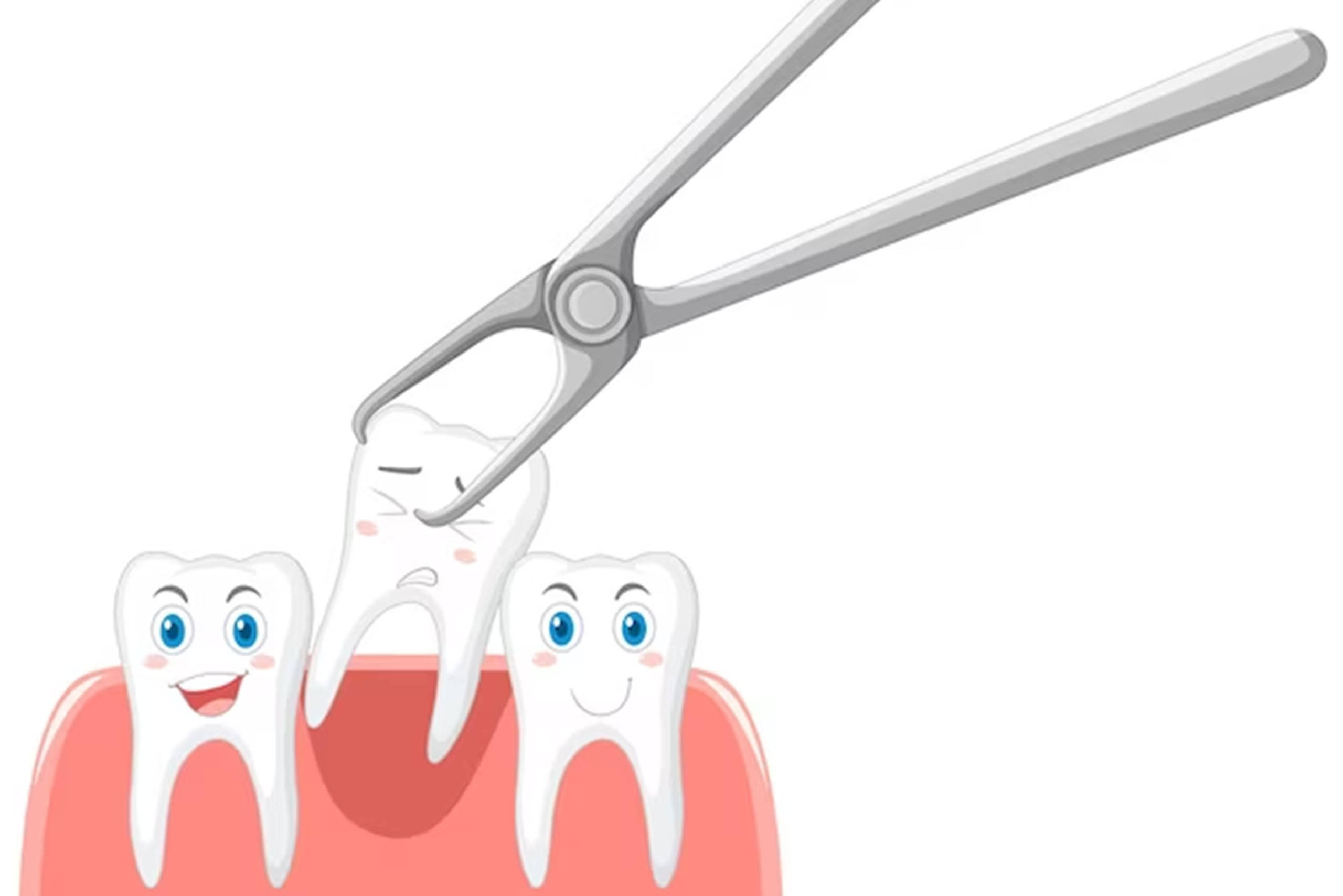Tooth extractions are sometimes necessary for maintaining dental health, whether due to decay, injury, or overcrowding. There are two primary types of tooth extractions: simple and surgical. Understanding the differences between these procedures, when each is recommended, and what to expect can help alleviate concerns and prepare you for a smooth recovery. At Pascack Dental Arts, we specialize in both simple and surgical tooth extractions, providing compassionate care for our New Jersey patients to ensure a comfortable experience.
What is a Simple Tooth Extraction?
A simple tooth extraction is a straightforward procedure typically performed when a tooth is fully visible above the gumline and can be removed without the need for complex incisions or additional work. Here are some common scenarios where a simple extraction is often used:
- Tooth Decay or Damage: When a tooth is decayed or damaged beyond repair, it may need to be removed to prevent further infection or pain.
- Overcrowding: In cases where teeth are crowded or there isn’t enough room in the mouth, a simple extraction can create the necessary space.
- Orthodontic Treatment: Some patients undergoing orthodontic treatments, like braces, may require extractions to ensure proper alignment of remaining teeth.
What to Expect During a Simple Extraction
In a simple extraction, the dentist will apply a local anesthetic to numb the area around the tooth. Using specialized tools, they’ll carefully loosen the tooth and gently remove it from the socket. The process is quick, often taking only a few minutes, and most patients experience minimal discomfort during and after the procedure. Recovery typically involves over-the-counter pain medications and basic aftercare, such as rinsing with saltwater and avoiding hard foods for a few days.
What is a Surgical Tooth Extraction?
Surgical tooth extractions are more complex and involve removing teeth that aren’t easily accessible, such as impacted teeth (often wisdom teeth) or broken teeth below the gumline. These extractions require a minor surgical procedure where an incision is made to access the tooth. Situations that may require a surgical extraction include:
- Impacted Wisdom Teeth: Wisdom teeth that haven’t erupted fully or are causing discomfort often require surgical removal.
- Severe Tooth Decay: If decay extends below the gumline and compromises the structure of the tooth, surgical extraction may be necessary.
- Broken or Damaged Teeth: When a tooth is fractured below the gumline, a surgical approach is often needed to remove it safely.
- Advanced Infection: In cases of severe infection, particularly if it has spread to the surrounding bone or tissue, surgical extraction may be recommended.
What to Expect During a Surgical Extraction
A surgical extraction is generally performed with local anesthesia, though some patients may opt for sedation to increase comfort. During the procedure, the dentist or oral surgeon will make a small incision in the gum to access the tooth and may need to remove some bone or divide the tooth into sections to facilitate removal. Surgical extractions require more time than simple extractions and may involve sutures to close the incision site.
Comparing Recovery Times
- Simple Extraction Recovery: Patients typically recover within a few days, with mild discomfort and swelling. Over-the-counter medications and ice packs usually suffice for managing pain.
- Surgical Extraction Recovery: The recovery period for surgical extractions is often longer, ranging from a week to ten days. You may experience more swelling and discomfort, and prescription pain medications are sometimes provided to manage pain.
Following aftercare instructions, such as avoiding strenuous activity, using cold compresses, and eating soft foods, is essential for both types of extractions to promote healing and reduce the risk of complications.
Key Differences Between Simple and Surgical Extractions
| Aspect | Simple Extraction | Surgical Extraction |
|---|---|---|
| Procedure Complexity | Quick and straightforward | Involves minor surgery and possible sutures |
| Anesthesia | Local anesthesia | Local anesthesia with possible sedation |
| Recovery Time | 2-3 days | Up to 10 days |
| Typical Cases | Visible teeth, less decay | Impacted, infected, or broken teeth |
How Pascack Dental Arts Can Help
At Pascack Dental Arts in New Jersey, we understand that tooth extractions can be daunting. Our skilled team of dentists provides both simple and surgical extractions, ensuring each patient receives individualized care in a safe, comfortable environment. We use the latest techniques to minimize discomfort, promote faster healing, and prioritize your comfort throughout the process.
FAQs About Tooth Extractions
1. Is a simple extraction painful?
Most patients experience minimal discomfort during a simple extraction due to local anesthesia. After the procedure, over-the-counter pain relievers and ice packs can help manage any soreness.
2. How long does a surgical extraction take?
The length of the procedure varies depending on the complexity, but most surgical extractions take around 30-60 minutes. Sedation options are available to help make the process more comfortable.
3. What can I eat after an extraction?
Stick to soft foods like yogurt, applesauce, mashed potatoes, and smoothies for the first few days. Avoid hot, spicy, or crunchy foods that could irritate the extraction site.
4. When can I return to work or normal activities?
For a simple extraction, most people feel well enough to resume normal activities within a day or two. For surgical extractions, it’s best to rest for a few days to allow proper healing.
5. Are there risks associated with tooth extractions?
Like any dental procedure, extractions carry some risks, such as dry socket, infection, or bleeding. However, following aftercare instructions can significantly reduce these risks.
6. How do I know if I need a simple or surgical extraction?
Your dentist will assess your situation and recommend the appropriate type of extraction based on factors like tooth visibility, decay, and location. During your consultation at Pascack Dental Arts, our team will thoroughly evaluate your case to determine the best approach.
7. How should I care for my mouth after an extraction?
Avoid rinsing your mouth vigorously, using a straw, or smoking for at least 24 hours, as these activities can disrupt healing. Gentle saltwater rinses after the first day can help keep the area clean.
Why Choose Pascack Dental Arts?
Our commitment to excellence at Pascack Dental Arts means that every extraction is handled with precision, skill, and a focus on patient comfort. We offer comprehensive dental services, from preventative care to extractions and restorative solutions, to help you maintain optimal oral health. Our knowledgeable team will walk you through every step of the extraction process, ensuring you feel informed and supported from consultation to recovery.
If you’re in New Jersey and require a tooth extraction, whether simple or surgical, reach out to Pascack Dental Arts. Our experienced team is here to help make the process as smooth and stress-free as possible. Contact us today to schedule your consultation and take the next step toward a healthier, pain-free smile.





Leave a Reply